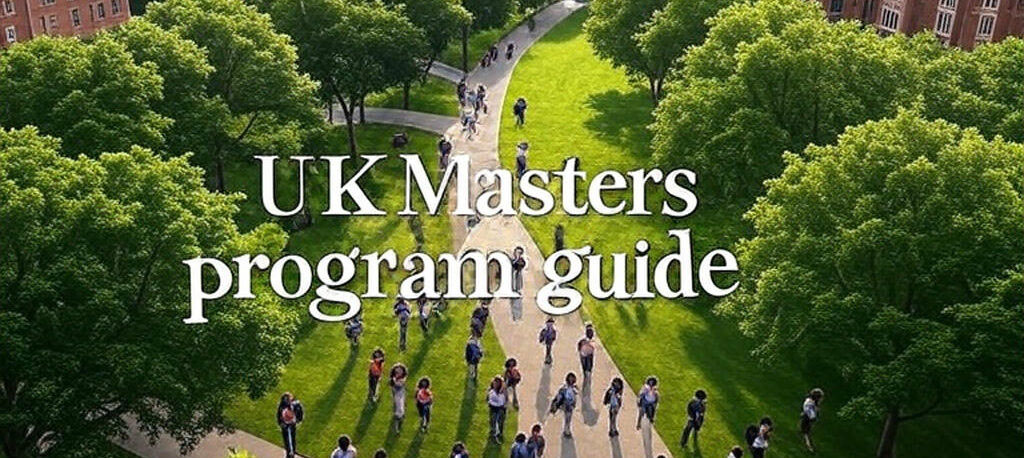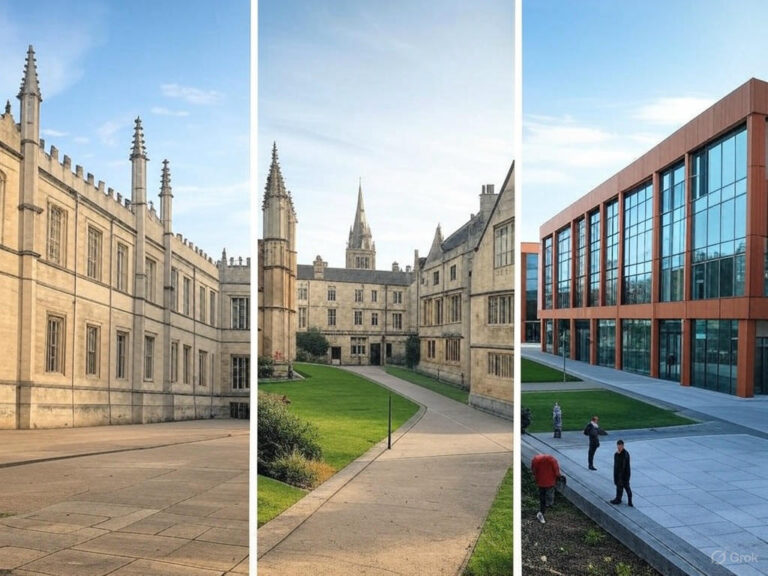
The morning I received my UK Masters acceptance letter, I was sitting in a café wearing mismatched socks and nursing my third espresso. The elation I felt wasn’t just about getting in—it was realizing I’d navigated the labyrinth of applications, funding options, and visa requirements without losing my mind. If you’re contemplating this journey, you’re probably oscillating between excitement and sheer panic. Let’s cut through the noise.

The Real Landscape of UK Postgraduate Education
The UK hosts over 150 higher education institutions, with staggeringly different personalities and specialties. I’ve walked the ancient cobblestones of Oxford and the ultramodern hallways of newer universities—each offers something completely unique.
British Masters programs differ fundamentally from many international counterparts. They’re intense, condensed, and typically completed in just one year—which means you’ll save time and money compared to two-year programs elsewhere, but you’ll also barely have time to breathe.
A friend who completed her MSc in Environmental Science described it as “academic bootcamp with occasional pub breaks.” That’s not far off.
Decoding the Alphabet Soup of UK Qualifications
UK Masters degrees come wrapped in bewildering acronyms. Here’s what they actually mean:
- MA (Master of Arts) – Humanities, arts, social sciences
- MSc (Master of Science) – Sciences, engineering, some business areas (e.g., MSc Computing)
- MRes (Master of Research) – Research-heavy programs with less classroom time
- MBA (Master of Business Administration) – Business leadership programs (usually more expensive, see Business Management courses)
- LLM (Master of Laws) – Specialized legal studies (e.g., LLB Law)
- MPhil (Master of Philosophy) – Research degree, sometimes a pathway to PhD
Some programs are strictly taught, others research-based, and many fall somewhere in between. The taught-to-research ratio dramatically affects your daily experience, so choose carefully. Explore various postgraduate courses to understand these differences.
Getting In: Beyond the Entry Requirements
Most UK universities want a 2:1 or 2:2 undergraduate degree (roughly equivalent to a B+/B average in North American terms), but here’s the thing—the most competitive programs at top universities often say 2:1 but quietly expect firsts (A-level work). For guidance on undergraduate admissions, check our guide.
English language requirements typically hover around 6.5-7.0 on IELTS, but some universities accept other proof of English proficiency. I’ve seen students submit medium of instruction certificates from previous education instead.
The application itself? Usually straightforward—personal statement, references, transcript, and sometimes a research proposal or portfolio. The catch is timing. Popular programs fill astoundingly fast, sometimes months before published deadlines. Learn more about navigating the UK student application process.
The Financial Picture: Not Just Tuition
When budgeting for a UK Masters, you need to consider more than just the headline tuition fee. Tuition for UK/EU students typically ranges from £9,000-£12,000, with humanities and social sciences programs often at the lower end. International students face steeper costs—anywhere from £14,000 to well over £30,000 for prestigious MBAs or medical sciences.
Accommodation costs vary wildly depending on location. Expect to pay £400-£800 monthly outside London, but London rents can easily exceed £1,000 for even modest accommodations. Living expenses add another £250-£500 monthly for essentials, while books and course materials might set you back between £250-£1,000 depending on your subject.
The financial side can be daunting, but there’s help. The UK government offers postgraduate loans up to £11,836 for UK students. International students should look toward university-specific scholarships, Chevening Scholarships (an external opportunity, consider linking to the official Chevening site if appropriate), or country-specific funding schemes.
When I applied, I discovered obscure scholarships targeting specific backgrounds or research interests that weren’t widely advertised. The specialists at Uni Students Hub pointed me toward funding options I hadn’t even considered—like professional development grants from industry bodies related to my field.
The Structure: One Intense Year
Most UK Masters programs run September to September and split roughly into:
- Term 1: Core modules (Sept-Dec)
- Term 2: Optional modules (Jan-March)
- Term 3: Exams (April-May)
- Summer: Dissertation/project (June-Sept)
Christmas and Easter breaks exist technically, but you’ll likely be reading or writing during them. The compressed timeline means you’re essentially doing two years of work in one—something I wish someone had emphasized to me beforehand.

The Application Reality Check
Every year, thousands of students apply to medical universities in UK with completely unrealistic expectations. Let me save you some heartbreak.
Your grades matter, obviously. But AAA is increasingly the baseline, not the goal. Most successful applicants have grades that would get them into almost any other course at any university.
Work experience requirements have become almost absurd. Hospitals are overwhelmed with medical university hopefuls, making meaningful placements increasingly difficult to secure. The key isn’t quantity—it’s quality and reflection. One week in a GP surgery where you genuinely engaged and learned will trump a month of hospital volunteering where you just observed from the sidelines.
Personal statements are where most applications die. Here’s the brutal truth: admissions tutors can spot generic, coached statements from miles away. They don’t want to hear about your “passion for helping people” (everyone says that). They want specific examples of problem-solving, leadership, and genuine insight into what medicine actually involves.
Location Matters More Than You Think
Where you study in the United Kingdom impacts everything from networking opportunities to living costs. London offers unparalleled connections and culture but at eye-watering expense. Regional universities might offer more support, community feeling, and dramatically lower living costs. Consider universities like the University of Sunderland or Teesside University for different experiences.
I studied in Edinburgh and found the sweet spot—international connections, vibrant city life, but reasonable costs compared to London. My flatmate chose Lancaster for his Masters and paid half my rent but had fewer industry events to attend.
The city you choose affects your daily experience profoundly. Do you thrive in bustling environments or need calm to focus? Do you want industry connections or research excellence? These questions matter enormously.

The Student Experience: What They Don’t Tell You
UK Masters cohorts tend to be impressively international. My program had students from 27 countries. This diversity enriches discussions but can also mean varied expectations about group work, academic writing, and classroom participation.
The social experience differs markedly from undergraduate life. People have varied backgrounds—some straight from bachelors, others returning after years working. Some with families, others living in student accommodation. This diversity creates a fascinating community but requires more effort to build connections.
One thing nobody prepared me for was the academic independence expected. Professors often provide minimal guidance, expecting you to drive your learning and research. Weekly contact hours can be shockingly low—sometimes just 6-10 hours—with the expectation that you’re independently working the rest of the time.
Choosing the Right Program: Beyond Rankings
University rankings matter, but department-specific reputation matters more. Some departments outshine their overall university ranking dramatically. Explore different universities like Durham University or the University of Leeds to see their specific strengths.
Research supervision quality varies enormously even within the same department. If research forms a significant component of your program, investigating potential supervisors is crucial. Read their recent publications, email them directly, speak with current students if possible.
Industry connections and placement opportunities vary wildly between seemingly similar programs. Some universities have robust relationships with employers and impressive placement records. Others focus more on academic excellence without strong industry ties. Consider programs like BA/BSc (Hons) Business Management for industry-focused learning.
The Application Timeline: When to Do What
Getting your timing right can make or break your UK Masters journey:
- 12-18 months before – Research programs and funding options (check courses)
- 10-12 months before – Take language tests if needed
- 8-10 months before – Apply for the most competitive programs and scholarships
- 6-8 months before – Apply for standard programs
- 3-5 months before – Apply for accommodation
- 2-4 months before – Apply for visa (if international)
- 1-2 months before – Sort banking, insurance, travel
Many prospective students don’t realize that Uni Students Hub offers end-to-end admissions support that can help with this timeline. Their tailored academic placement service saved me countless hours of research, matching my profile to programs where I had the best chance of acceptance and funding.
Beyond the Classroom: Making the Most of Your Year
The brevity of UK Masters programs means strategic approaches are essential. Some tips from my experience:
- Form study groups early—collective knowledge helps everyone
- Attend department events even when optional—connections matter
- Start thinking about dissertation topics in term one, not when assigned
- Use university career services from week one, not just before graduation
- Find one society or activity unrelated to your studies for sanity maintenance
The Visa Situation for International Students
International students need a Student visa, which currently costs £363 plus a healthcare surcharge (around £470 for a year). You’ll need to demonstrate:
- An unconditional offer
- Financial capability (tuition plus £1,334 per month for living costs)
- English language proficiency
The good news is that the UK has reinstated the two-year post-study work visa (Graduate Route), allowing international students to work in the UK for two years after graduation without sponsorship.
What Employers Actually Think About UK Masters
Different industries view UK Masters degrees differently. In some fields—like international relations or certain engineering specialties—they’re essentially required. In others, they’re beneficial but optional.
The one-year timeframe can be a double-edged sword. Employers appreciate the intensity and focus required to complete a UK Masters, but some international employers unfamiliar with the UK system might question the brevity compared to two-year programs elsewhere.
The key is leveraging what makes UK Masters unique—their intensity, specificity, and the independence they require. These qualities translate well to workplace competencies when properly articulated.
Common Pitfalls and How to Avoid Them
The compressed timeline of UK Masters programs creates some common traps:
- Procrastination – In a one-year program, falling behind even two weeks can be catastrophic
- Poor supervisor relationships – Address communication issues immediately; switching later is complex
- Isolation – The workload can be isolating; build support networks proactively
- Dissertation scope creep – Define realistic boundaries for your research early
Making Your Final Decision
If you’re wavering between programs, consider:
- Which program better serves your specific career goals? (e.g., BSc (Hons) Adult Nursing vs. BA (Hons) Politics)
- Where will you have better research or networking opportunities?
- Which location will support your wellbeing and work style?
- What financial package makes most sense long-term?
The pre-departure orientation offered by Uni Students Hub helped me prepare not just logistically but mentally for my UK Masters experience. Their financial aid support team helped me evaluate competing offers to make the best long-term decision.
For personalized guidance on UK Masters applications, you can contact Uni Students Hub at +44 7827 224636 or visit their London office at 107-111 Fleet Street. More information can also be found on our about us page.
Looking Forward: The Real Value of a UK Masters
A UK Masters is more than a qualification—it’s an exercise in academic focus, intercultural communication, and intellectual growth under pressure. These qualities translate powerfully to professional settings when properly leveraged.
I finished my UK Masters with more than just knowledge—I gained a global network, research capabilities, and the confidence that comes from completing something genuinely challenging. That, ultimately, may be the most valuable outcome of all. For more insights, check out our blog.
Frequently Asked Questions
What are the entry requirements for UK masters programs?
While requirements vary by institution and program, you’ll typically need a UK bachelor’s degree with a 2:2 or 2:1 classification or an international equivalent. Top programs might unofficially expect higher grades. Some programs also consider significant professional experience in place of formal qualifications. (See Undergraduate Courses for context on degree classifications).
How long does a masters degree in the UK usually take?
Most UK masters programs run for one year full-time, from September to August or September. This includes taught modules followed by a dissertation or major project. This condensed timeline differs significantly from two-year programs common in many other countries.
Can I apply for a UK masters program without IELTS?
Yes, in many cases. While IELTS (typically 6.5-7.0) is widely accepted, many universities now recognize alternative English proficiency evidence like high school English marks or medium of instruction certificates from previous degrees taught in English.
How much does it cost to study a masters in the UK?
Tuition fees generally range from £10,000 to £15,000 for most programs, though prestigious MBAs and certain specialized courses can cost significantly more. Living costs vary dramatically by location—budget between £400 to £900 monthly outside London, with London requiring considerably more.
Can I work while studying a masters in the UK?
Yes, most student visas allow up to 20 hours of work per week during term time and full-time during holidays. However, the intensity of UK masters programs means many students find balancing substantial work hours challenging without impacting their studies.
Does my undergraduate degree have to be related to my masters course?
Not necessarily. Many masters programs welcome students from diverse academic backgrounds, particularly in fields like business (e.g. FDA Business Management), some humanities, and interdisciplinary subjects. More technical or specialized programs (e.g. BSc(Hons) Computing with Cyber Security Technology) may require relevant prior knowledge, though even then, there are often conversion courses available. For specific nursing entry details, see entry requirement for nursing.
